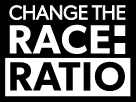Our recent ED&I Leaders Summit kicked off with a great welcome from EY’s Chair and UK and Ireland Managing Partner, Hywel Ball setting the tone for an engaging and thought-provoking afternoon, kindly hosted by EY, with stunning panoramic views of London, overlooking the Tower of London and St Pauls.
Hywel spoke about the collaboration between Change the Race Ratio and working with other campaigning organisations which reflects on where we should all be heading in 2025. EY’s upcoming report DEI Interventions that deliver, launching in early 2025, is a collaboration involving a number of leading campaigns and seeks to identify the actions that work to remove and reduce barriers for underrepresented talent.
The discussion delved into the progress being made by Change the Race Ratio signatories on increasing racial and ethnic minority representation at senior levels and the strides taken to have transparency on ethnicity pay gap reporting, but as always there is more to be done. The past 12 months have been challenging with the unexpected riots and unrest in the summer, which has made making progress in some areas of ED&I more difficult. during these times it can be easy for business leaders to unintentionally take their sights off their deeply set ambitions, due to other challenges being made a priority.
Hywel addressed the topic of our people, customers, society, and stakeholders increasingly having expectations of us, wanting reassurance that we are playing our part in addressing the issues that really matter and that includes creating an inclusive culture.
EY aims to work together with other organisations that are seen as game changers to deliver real change and make a positive impact in business and society. EY are determined to ensure continued progress on equity at every level of the organisation as well as supporting their clients to do the same to help push the agenda more broadly.
EY is extremely proud to be one of Change the race ratio founding partners and for a number of years publishing on their ethnicity pay gap data and a separate black employee pay gap. Their own internal ED&I journey has shown that leadership commitment is pivotal when it comes to cultural change. 40% of their people are from an ethnic minority background and since 2018 EY have double proportion of ethnic minority partners in the firm too. There are still equity gaps, and everyone needs to put in a collective effort to be an inclusive workforce to help change the race ratio.
Change the Race Ratio’s Chair, Sir Trevor Phillips also welcomed delegates with an inspiring keynote sharing valuable insights which started with the US election results and the importance of understanding what ED&I is trying to do and what it is really supposed to achieve. The central mission is for us to make a human difference that we cannot change irrelevant to outcomes and demographics shouldn’t determine our destiny.
It's important to understand what matters to employees at home should also be reflected in the workplace, as these are experiences shape individuals and play an essential role in defining their identity, by the families and backgrounds they come from, but this also shouldn’t become a limiting factor for them to progress.
The challenge for businesses to create an inclusive culture will continue to grow, all population increases in this century, in the UK, will be derived from immigration. Meaning the composition of our population is going to change dramatically, developing open and inclusive workplace cultures is important to grasp with the government’s growth agenda and the prime minister’s determination to grow the economy.
In business ED&I is all too often focussed on reducing risk, risk of group think in decision, managing talent shortages etal. It's often considered to be on the liability side of the balance sheet, how can we reframe ED&I and focus on the asset side on the balance sheet. How is investment in ED&I drive business growth and commercial success.
As ED&I representatives, we need to get ahead and keep the narrative away from being seen as a liability and help find a place on the balance sheet, demonstrating the benefit of having racial and ethnic minority representation helping companies become more profitable than their competitors.
Change the Race Ratio’s signatories are ahead of the curve in creating more inclusive workplaces, and whilst that is a positive step, there are many firms that still need to commit to help drive meaningful change, which matters because unless we understand the desire of a business’s workforce it’s hard to set company policies that are inclusive for all.



